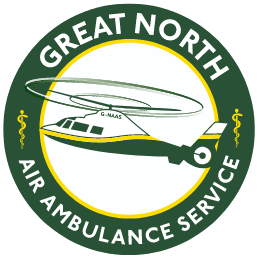On International Women’s Day, Dr Laura Duffy tells us about her career as a doctor in pre-hospital emergency care.
As well as working with the Great North Air Ambulance Service, Dr Duffy is an Emergency Department/Pre-Hospital Care Consultant working in Carlisle Trauma Unit and Officer Command Clinician at 201 Field Hospital, with whom she has gone on tours of Iraq and Afghanistan.
What made you choose a career in pre-hospital emergency medicine?
I wanted to work outside, and I love working in a small team where everyone is forward-thinking. Working in pre-hospital care gives you the opportunity to push the boundaries and developments and advancements happen much more quickly compared to other areas.
What do you love most about your job?
I love the teamwork. And obviously flying around in a helicopter! But there’s a real camaraderie.
What are you most proud of achieving or accomplishing in your career, or what stood out as a memorable day at work?
Just being able to help people is always an accomplishment and I’m very proud to be able to do that. I’m in the army as well, but being able to get involved with the Great North Air Ambulance Service is difficult as it is a sought-after position, so being able to join was a really proud moment.
Do you think the landscape has changed, or is changing, for women looking to enter the pre-hospital care environment?
Thanks to the national training scheme for pre-hospital emergency medicine, it is now much easier. It used to be about who you know, but thanks to the national training scheme it is much more accessible and there has definitely been an increase of women on the course, which can only be a positive.
Do you think there are any hurdles that might prevent women from applying for a role in medicine or emergency care?
The national training scheme really opens the opportunities for women. There are things which can make it much more difficult for a woman. For example, if you are pregnant, you can only fly until up to 10-12 weeks, which means taking a lot of time off. So as a member of the childbearing gender you can be faced with more difficulties. But thanks to the training scheme there is more of an advantage and it is more realistic.
What advice would you offer to people thinking of pursuing a career in PHEM?
Get involved early. Engage with your local ambulance service or air ambulance service, take part in all of the training, audits and research. And show a willingness. People applying for these positions need to be forward-thinking and on the ball. A lot of the time it will mean giving up your spare time, but engaging and showing willing are most important.
International Women’s Day takes place annually on the 8th March. Join in the conversation using #FEMinPHEM.
To find out more about GNAAS courses, visit the training section of our website.



